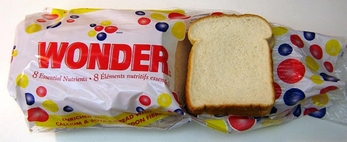Jupiter is made of gas with no solid surface, so would we -
Jul 28, 2019 6:24:28 GMT -5
fernwood, braat, and 1 more like this
Post by 1dave on Jul 28, 2019 6:24:28 GMT -5
Jupiter is made of gas with no solid surface, so would we keep falling to the center if we fall into it?
Keith Berry, B.S. Biology, University of Nevada, Las Vegas (1963)
Updated Jan 13 · Upvoted by Léon van Heijkamp, Ph.D. Physics, Delft University of Technology (2010) and Pedro Teles, PhD Physics, University of Porto (2007)
No. It’s a little more complicated than that. Let’s take a 200 lb (90 kg) you falling into Jupiter’s atmosphere. Jupiter’s gravity is 2.4 times Earth’s, so you would shed 2.4 times as much energy on re-entry as on earth. That would make a nice fireball when it got a few miles into atmosphere.
You survive, just so we have something left to discuss.
As you get into the atmosphere, both the temperature and pressure increase with depth. As the pressure and temperature increase, the atmosphere compresses, So the density would increase too. When you get several thousand miles down, the atmosphere would reach your body density. Shortly after this point you would stop falling and start back up.
You would float on atmosphere squeezed into the consistency of syrup. At this temperature and pressure, even our scenario of your survivability breaks down and the carbon in your body could well be squeezed into diamonds. Diamonds are more dense than the human body, so they would continue down.
Over time, many rocks, asteroids, and comets have fallen into Jupiter’s gravitational grip. These would have formed into a ball at the center, but it is a ball with all the properties of a metallic gas. Most likely this gas is graded by density of the elements within it, and the vaporized carbon from your diamonds would float near the surface of this ball. Around the ball is a cloud of metallic hydrogen which is electrically conductive and most likely generates Jupiter’s magnet field. You would still be many miles from the center.
Thanks, I learned a lot answering your question. That’s why Quora is fun.
EDIT: O.O - 3K upvotes! Thanks!
EDIT: Thanks to Charles Weiler who suggested that at the temperature and pressure at Jupiter’s core, it is possible that there could be a solid surface of metallic hydrogen. After checking the triple-point of hydrogen, this could actually be the case. It does not effect the outcome, but is definitely interesting.
259.2k views · View Upvoters · View Sharers
Updated Jan 13 · Upvoted by Léon van Heijkamp, Ph.D. Physics, Delft University of Technology (2010) and Pedro Teles, PhD Physics, University of Porto (2007)
No. It’s a little more complicated than that. Let’s take a 200 lb (90 kg) you falling into Jupiter’s atmosphere. Jupiter’s gravity is 2.4 times Earth’s, so you would shed 2.4 times as much energy on re-entry as on earth. That would make a nice fireball when it got a few miles into atmosphere.
You survive, just so we have something left to discuss.

As you get into the atmosphere, both the temperature and pressure increase with depth. As the pressure and temperature increase, the atmosphere compresses, So the density would increase too. When you get several thousand miles down, the atmosphere would reach your body density. Shortly after this point you would stop falling and start back up.
You would float on atmosphere squeezed into the consistency of syrup. At this temperature and pressure, even our scenario of your survivability breaks down and the carbon in your body could well be squeezed into diamonds. Diamonds are more dense than the human body, so they would continue down.
Over time, many rocks, asteroids, and comets have fallen into Jupiter’s gravitational grip. These would have formed into a ball at the center, but it is a ball with all the properties of a metallic gas. Most likely this gas is graded by density of the elements within it, and the vaporized carbon from your diamonds would float near the surface of this ball. Around the ball is a cloud of metallic hydrogen which is electrically conductive and most likely generates Jupiter’s magnet field. You would still be many miles from the center.
Thanks, I learned a lot answering your question. That’s why Quora is fun.
EDIT: O.O - 3K upvotes! Thanks!
EDIT: Thanks to Charles Weiler who suggested that at the temperature and pressure at Jupiter’s core, it is possible that there could be a solid surface of metallic hydrogen. After checking the triple-point of hydrogen, this could actually be the case. It does not effect the outcome, but is definitely interesting.
259.2k views · View Upvoters · View Sharers











